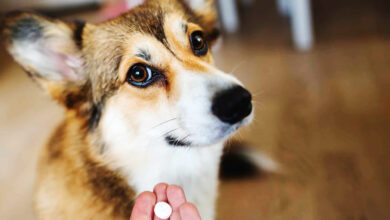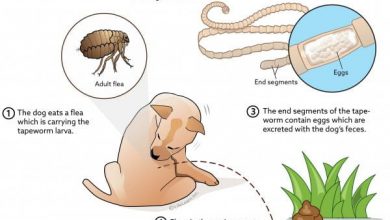Uncovering the Mystery Behind Why Your Dog Growls When You Show Affection

1. Introduction
Kissing your dog may seem like a simple and harmless way to show affection, but for some dogs it can be an unpleasant experience. Dogs may growl when kissed for many different reasons, ranging from fear and anxiety to territorial aggression. In this article, we will discuss why does my dog growl when I kiss him and what you can do to stop this behavior.
2. Reasons Why Dogs Growl When Kissed
Growling is a warning sign that your dog is uncomfortable or anxious about something. When dogs are kissed, they may growl as a way of communicating their displeasure or discomfort with the situation. Some of the most common reasons why dogs growl when kissed include:
3. Fear and Anxiety is a Common Cause of Growling Behavior in Dogs
Fear and anxiety are two of the most common causes of growling in dogs when they are kissed. If your dog is scared or anxious about being kissed, he may growl as a way of expressing his discomfort and trying to make the situation stop. It is important to note that fear-based aggression in dogs can be dangerous and should always be addressed by an experienced professional trainer or veterinarian.
4. Stress and Overstimulation May Lead to Growling
Stress and overstimulation can also lead to growling in dogs when they are kissed. Some dogs may become overwhelmed by too much attention or physical contact, which can lead them to become stressed out and defensive. If you notice your dog becoming overly aroused or stressed out when being kissed, it is important to take steps to reduce their stress levels before continuing with the activity.
5. Territorial Aggression Can Result in Growling
Territorial aggression is another possible cause of growling in dogs when they are kissed. Dogs may become defensive if they feel threatened by someone entering their personal space or invading their territory, which includes kissing them on the head or face area. If your dog has exhibited territorial aggression towards other people or animals before, it is important to take extra caution when approaching him for kisses as he may react negatively if he feels threatened or invaded upon again.
6. Pain or Injury Can Also Lead to Growling
Pain or injury can also lead to growling in dogs when they are kissed as they may be trying to communicate that something hurts them or makes them uncomfortable. If you suspect that your dog is experiencing pain while being kissed, it is important to take him for a checkup at the vet as soon as possible so that any underlying medical conditions can be identified and treated accordingly before further discomfort occurs during kisses with you.
7 How To Stop Your Dog From Growling When Kissed
If your dog has been exhibiting aggressive behavior such as growling while being kissed, there are several steps that you can take in order to help him overcome his fear and learn how to accept kisses without feeling threatened:
• Create positive associations with physical contact – reward your pup with treats whenever he allows himself to be touched without reacting negatively (such as growling). This will help him understand that physical contact does not always mean bad things will happen;
• Desensitize him gradually – start by simply touching his head/face area gently without kissing him directly at first; gradually increase the intensity of contact until he no longer reacts negatively;
• Avoid punishment – punishing your pup for exhibiting fearful behavior such as growling will only make matters worse; instead use positive reinforcement techniques such as treats/praise whenever he behaves appropriately;
• Seek professional help – if all else fails it might be time for you seek professional help from an experienced animal behaviorist who will provide tailored advice on how best manage/treat your pup’s fear-based aggression issues;
8 Desensitization Training For Your Dog
Desensitization training involves slowly introducing new stimuli (in this case physical contact) into a pup’s environment until he becomes comfortable enough with it so that it no longer elicits negative reactions (such as growling). This process should always be done gradually under the guidance of an experienced animal behaviorist who will provide tailored advice on how best manage/treat your pup’s fear-based aggression issues;
9 Conclusion: Why Does My Dog Growl When I Kiss Him?
>
In conclusion, there are many reasons why does my dog growl when I kiss him ranging from fear and anxiety all the way up through territorial aggression and pain/injury related issues; however regardless of what caused this behavior initially there are several steps that you can take in order to help him overcome his fear including creating positive associations with physical contact through reward-based training techniques, desensitizing him gradually through slow exposure therapy sessions under expert guidance and avoiding punishment altogether in favor of positive reinforcement techniques such as treats/praise whenever desired behaviors occur instead.



